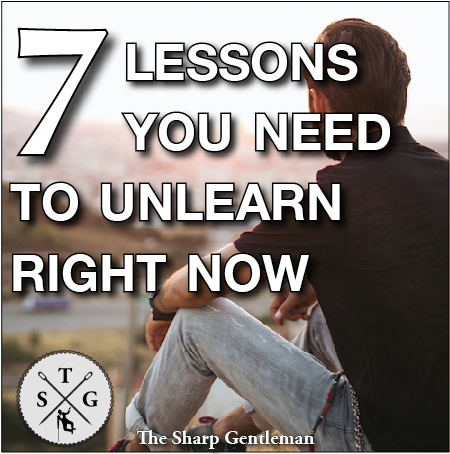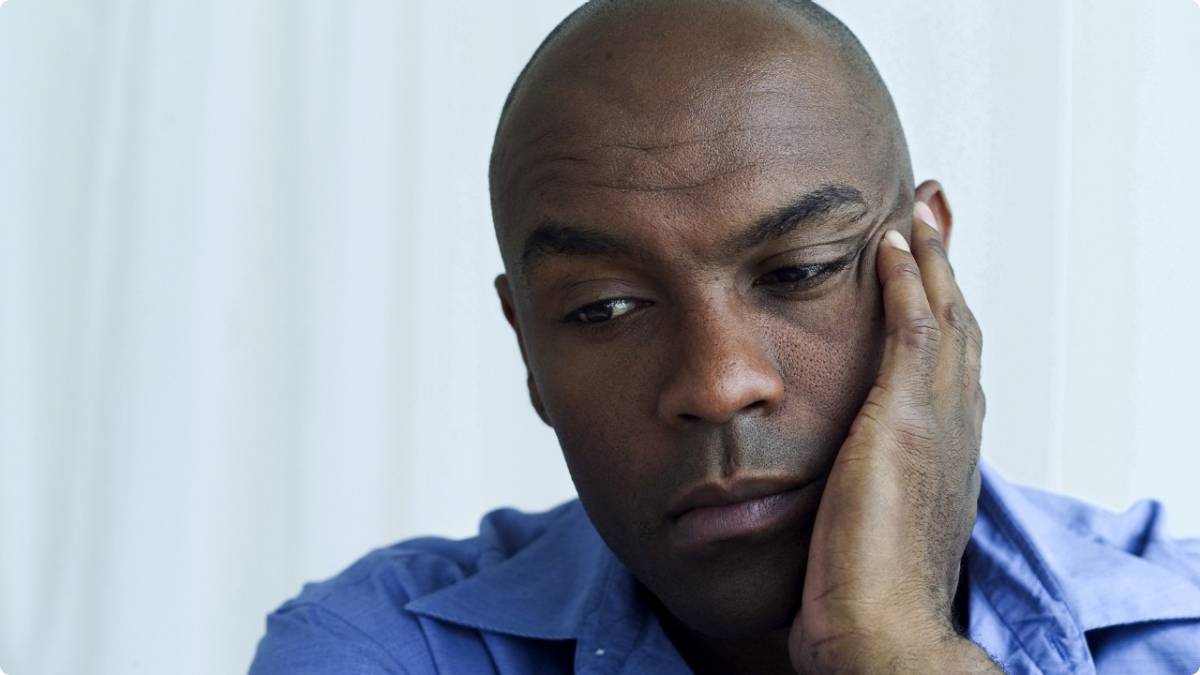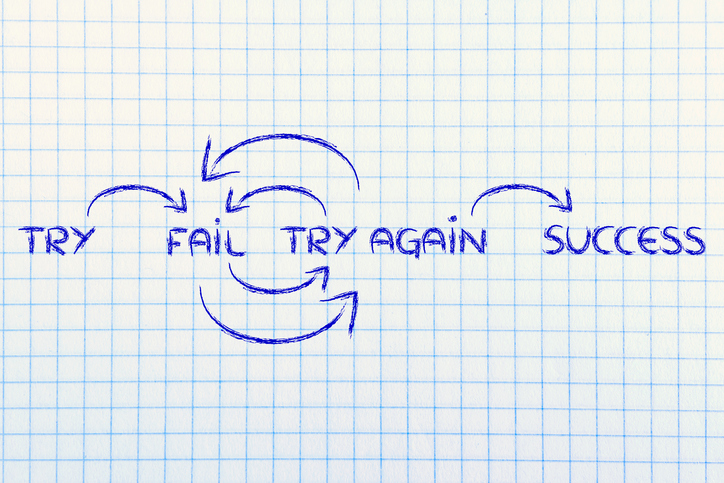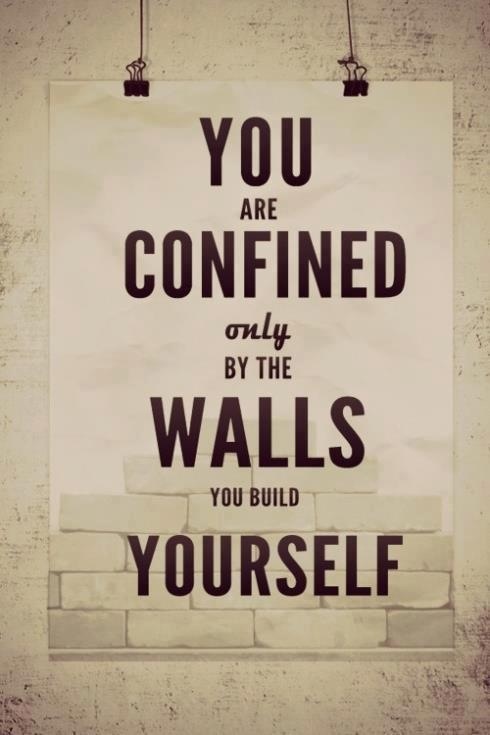7 Lessons You Need to Unlearn Right Now

Some lessons just need to be forgotten…
 It never ceases to amaze me how brilliant people can opt not to pursue their big ideas because old lessons they’ve learned are so deeply ingrained. What a tragedy it is to watch someone give up before he or she even begins. Some poor lessons we learned as early as childhood can still haunt us today.
It never ceases to amaze me how brilliant people can opt not to pursue their big ideas because old lessons they’ve learned are so deeply ingrained. What a tragedy it is to watch someone give up before he or she even begins. Some poor lessons we learned as early as childhood can still haunt us today.
Even in my own business and personal life, I wrestle against lessons I have gleaned from past experience, my parents, friends, teachers, and the media. It’s made me realize that more often than not, the biggest obstacle to you having the life or business or love –or whatever– you want actually lives between your ears. That space where your mind is… yeah, that’s where old, outdated, frivolous lessons are making rules you’re afraid to break.
And you are suffering for it.
Whether you want to launch a business, chase an idea, fall in love, take a risk, or stand up and declare you’re worth more than whatever is keeping you stuck, there are lessons you need to unlearn.
In this podcast, I want to introduce you to 7 lessons you need to unlearn right now to start creating the life you want. I offer this disclaimer though: you may feel some resistance when trying to unlearn these. Push through it. You will be better for it, I promise. [remember to Subscribe Here]
Show Notes
These lessons aren’t consciously in any particular order of importance. I say consciously because I’m sure on some level I wrote these in this order for a reason. I guess we’ll just have to go through them and find out.
I can’t let anyone down.
 The merits of this lesson revolve around commitment and being accountable – both good things. Where this lesson becomes a detriment is when responsibility is taken for people and events that isn’t yours to take. You say yes to things that you, in your heart of hearts, know you shouldn’t agree to, and subsequently accept responsibility for them.
The merits of this lesson revolve around commitment and being accountable – both good things. Where this lesson becomes a detriment is when responsibility is taken for people and events that isn’t yours to take. You say yes to things that you, in your heart of hearts, know you shouldn’t agree to, and subsequently accept responsibility for them.
“I don’t want to let anyone down, so I’ll do whatever I can to not disappoint anyone. I’ll just do my part, nothing more, I promise.”
This is a lie. You’ll do more. You always do. You’re programmed to. This lesson probably came to you early in life when you disappointed someone like your parents. Maybe they set the bar for you in something and you didn’t show up how they wanted. Maybe it was a relationship that manipulated you into believing you would let those you love down if you didn’t get married and start a family. Maybe it was a sport that taught you not to let anyone down ever.
Unfortunately, your life is not a team sport. Those people helping to hammer in these lessons are merely spectators in your life. The disappointment of letting people down is often short lived, but the shame and guilt taught as a preventative measure last significantly longer. The biggest, and more important person you can let down is yourself. Truly, when you focus on being the best version of you –for you– you’ll discover that people won’t easily put you in a position of assumed responsibility and guilt. You won’t let anyone down because you’ll have more clarity, confidence, and certainty in who you are and what you will and will not agree to.
You can let others down. More often than you think, the relationship(s) you’re working so hard to maintain ends up being fairly one-sided. Reflect on some of your own history and I’ll bet you discover the people you didn’t want to let down, let you down quite a bit. Look, I’m not saying you should just go around letting people down; rather, I’m inviting you to be honest and straight-forward from the beginning. It’s far better to say you can’t do something than to say you can, then do it and end up under-appreciated for it.
Don’t show any weakness.
As men, we are taught at a very early age that we aren’t supposed to cry. We’re not supposed to be weak or babies or even sensitive to emotion. Even if our parents were amazing people and never made us feel wrong for showing “weakness,” the media, the schoolyard, and the language taught us otherwise.
 One of the most amazing things happens when you allow yourself to show emotion and be vulnerable: you gain confidence. It may sound counterintuitive, but being vulnerable and authentic shows the world you are, in fact, human. You quickly discover that people around you don’t make you feel bad for showing weakness; instead, they show you respect and support. But let’s go back to why this is one of the lessons you need to unlearn.
One of the most amazing things happens when you allow yourself to show emotion and be vulnerable: you gain confidence. It may sound counterintuitive, but being vulnerable and authentic shows the world you are, in fact, human. You quickly discover that people around you don’t make you feel bad for showing weakness; instead, they show you respect and support. But let’s go back to why this is one of the lessons you need to unlearn.
Growing up, we all learn to process things as they come. We learn what is and isn’t acceptable from our parents. Should we begin crying after losing a game of little league baseball (as a 7 year old), and get chastised for crying like a baby, we remember that. We begin to believe that showing emotion is a sign of weakness, and we can’t do that anymore.
So we’re bottling our emotions and moving right along. No big deal, right? Once we reach adulthood, we have heard the phrase man up at least a thousand times. We can safely equate manliness with strength and no emotional weakness. Unfortunately, this is incorrect.
In order to have deep, fulfilling relationships and experiences in life, we have to express our emotions. We’re not robots. Let me say that again.
[bctt tweet=”Gentlemen, you aren’t robots. Showing emotion, being vulnerable isn’t weakness, it’s humanity.” username=”blakehammerton”]Unlearn the lesson that you can’t show weakness because you definitely can. This is especially true when you unlearn the lesson that showing emotion equals showing weakness. Avoid the rhetoric of the strong, emotionless, non-communicative man, and instead embrace the authentic man, filled with wisdom, life experience, emotion, and confidence.
It’s important what people think of me.

For the longest time, I was a people pleaser. I’m effortlessly good at it, but I’ve since become a little more discerning in the people I please. I want everyone to like me –we all want people to like us– but these days I’m not as concerned if they don’t. Why the change? What happened to free me from being such a robust people-pleaser?
I got burned. Repeatedly.
Look, we all want people to like us, but it becomes an issue when we start agreeing to things that are outside our integrity. Just like the first point above, we end up doing things or being something to someone that doesn’t truly appreciate us. To really bring this point home, let’s look at an example we’ve all been through:
 Think back to your past and one relationship in particular. She was a nice girl, and you may have loved her on some level, but you didn’t want to be in the relationship anymore. In moments of clarity, you realized you want her to be happy, but you’re not the guy for her (and she’s not the girl for you). When breaking up with her, you carefully selected your words so you didn’t hurt her. You may have even agreed to stay together and work it out a little longer.
Think back to your past and one relationship in particular. She was a nice girl, and you may have loved her on some level, but you didn’t want to be in the relationship anymore. In moments of clarity, you realized you want her to be happy, but you’re not the guy for her (and she’s not the girl for you). When breaking up with her, you carefully selected your words so you didn’t hurt her. You may have even agreed to stay together and work it out a little longer.
You cared what she thought of you, even though you didn’t want to be together anymore. Even though you weren’t doing a nice thing (breaking up), you needed her to still think you were a nice guy, right?
After several failed relationships and even business projects, I realized that I can do more for the relationships I’m a part of by being honest and pleasing myself first. If the project makes me happy, I’m willing to give more to it. If it doesn’t make me happy, I’m not going to be a part of it. Keeping my integrity in check, I know I can provide more to the relationships and projects I start.
Success is the opposite of failure.
 If you search for success and failure on Google, you’ll see a bunch of images of success being one direction and failure being the opposite. This is false. Not only are they not opposites, they’re also not mutually exclusive. Hell, you can have success within a failure, and vice-versa!
If you search for success and failure on Google, you’ll see a bunch of images of success being one direction and failure being the opposite. This is false. Not only are they not opposites, they’re also not mutually exclusive. Hell, you can have success within a failure, and vice-versa!
When babies learn how to walk, they don’t try and fail and decide, “that’s it for me. I failed.” They keep going and they keep failing, while gaining a little more insight into their own balance, movement, strength, and dexterity. Eventually, they’re standing and walking on their own. This is the process of achieving success – failure is a step along the way, not a step in the wrong direction.
Everything you’ve ever achieved taught you failure somewhere along the way. Before you met your significant other, you had failed relationships, right? Before you landed the job you have now, you had a few that weren’t great and probably taught you what it feels like to be unsuccessful, right? Exactly.
Success is not the opposite of failure. They are not mutually-exclusive. They can both take you in the same direction if you learn something through each failure so you’re better equipped to reach success.
Get a “real” job to be safe.
 This is a tale as old as time. You were probably indoctrinated into the world of “go to college, graduate, get a stable job with benefits, retire happy.” While these opportunities do still exist, they are few and far between. Now that technology has surpassed the earning and freedom potential of the old model, the old habits of being told to get a real job are even more annoying.
This is a tale as old as time. You were probably indoctrinated into the world of “go to college, graduate, get a stable job with benefits, retire happy.” While these opportunities do still exist, they are few and far between. Now that technology has surpassed the earning and freedom potential of the old model, the old habits of being told to get a real job are even more annoying.
Several of my friends are entrepreneurs without a fixed schedule. Others are nannies and make great money in Chicago and Dallas. Few of my friends have what our elders would consider real jobs, but because they understand their worth, they are safe working for themselves and creating their own “retirement plans.”
If you have an idea you want to bring to life, go for it. If you want to create your own business or work on projects for other businesses from the comforts of your own home or office, make it happen. Don’t let the fear of being unsafe coerce you into taking a job in Corporate America that isn’t safe either. Safety is an illusion, and anything that generates revenue for you is a real job. Don’t let anyone tell you otherwise.
The harder I work, the more successful I will be.

Before we talk about this being one of the lessons you need to unlearn, let’s address the fact that this is still a lesson many people also need to learn first. The merits of this lesson are that hard work pays off. The idea that if you stay focused and work to make your goals happen is a good one.
However, there is a slippery slope with this lesson, and that’s why you need to unlearn it right now. Where I want to focus isn’t on hard work, but rather, the gray areas between working and playing, and working harder and working smarter.
My dad was a type-A personality my entire childhood. He was an excellent boss, but not a fun guy. My sister and I grew up with a man that went ot work early, came home late, and did “paperwork” at his desk after dinner. He worked incredibly hard. He didn’t, however, work smart at all.
Schedules would conflict constantly. He would have to run out on Sunday mornings to approve prints for projects (he was a master printer by trade), and would take on more responsibility than necessary to make sure things went his way. He was always working.
So many people believe that working their fingers to the bone day in and day out will eventually lead them to success. Instead, they’re exhausted and have no time to experience any success, even if it does show up. This is where I invite you to define success for yourself. Is it money? Is it freedom to enjoy life? Is it small moments? Is it grand experiences?
The point is, my dad was in action all the time. He was constantly taking action toward his goals, but he was very seldom in motion toward them. You see, the lesson here is two-fold:
- Working hard and not smart will leave you exhausted, not successful.
- You must make sure you’re in motion, not just action.
Unlearn that hard work is the only thing that pays off. Smart work pays off just as well, and more often, rewards you with more freedom and time. Define what you want your personal success to look like, and find the people to help you make that happen, the technology you can use, the places you can go to bring it to fruition, and the steps you can take to get you into motion toward it. It may look like hard work, but done wisely, it will give you more of your version of success faster than the old way.
Life is hard so prepare accordingly.
Here’s the honest truth: life isn’t fair, but it’s also not hard. If it was hard, we would all be dead. We’re terrible at doing things that are hard, especially these days. Look, life is a constantly evolving tapestry of experience. Time is always in motion. Even if we give up, we’re still in it. It’s not hard.
 It is, however, unfair. It’s designed to be that way because fairness is a personal construct. Fairness is not universal. Trees get better sun than the grass below them, right? How totally unfair! Birds get to fly through the air, but we don’t. How ridiculously unfair! Marcus got promoted before I did. So unfair!
It is, however, unfair. It’s designed to be that way because fairness is a personal construct. Fairness is not universal. Trees get better sun than the grass below them, right? How totally unfair! Birds get to fly through the air, but we don’t. How ridiculously unfair! Marcus got promoted before I did. So unfair!
When you focus on the unfairness and the difficulties you see in life, it jades your lens. I’m sure you’ve met someone who believes life is hard and unfair, and I’m sure that person’s negativity brought you down. With a lens that views the world as difficult and unfair, what do you feel is possible for you? Do you feel like you can achieve what you want in life? Do you feel like it’s worth it?
The reason why this is one of the lessons you need to unlearn is simply because it’s doing you a disservice. Life can pose challenges, but it is all subjective, my friend. The way in which you view the world has everything to do with your success in it. Unlearn that life is hard. Unlearn that it’s tough. Learn that it can be challenging, but you’re more than equipped to handle it and come out victorious.
Final thoughts
There are hundreds of lessons we’ve picked up in our lives. Some are better than others, but they all play a role in shaping our perspective and helping us achieve our personal successes. In hypnotherapy, my job is to focus on the lessons you’ve learned that are keeping you in action, instead of motion, and correct them. I invite you to explore the lessons you believe to be true about yourself and your life, and challenge any that make you feel less capable or less successful. If it doesn’t feel like a lesson you can take to the top, throw it out.
Stay brilliant, my friends.
What lessons do you need to unlearn right now?
What have you been taught that’s no longer serving you? What are you trying to accomplish?
Let me know in the comments below! And remember to SUBSCRIBE to the podcast!




